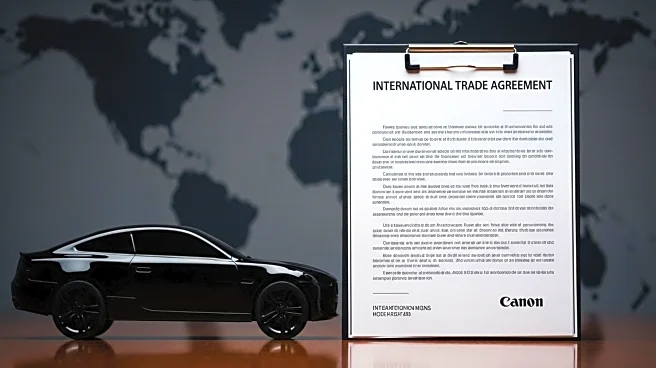What's Happening?
The Trump administration is negotiating with the European Commission to potentially lower auto tariffs on European vehicles and parts. This move is contingent upon the European Commission introducing specific legislation, which was announced on August 28. The legislation is seen as a prerequisite by the Trump administration for reducing these tariffs. The discussions are part of broader trade talks aimed at addressing various economic issues between the U.S. and Europe.
Why It's Important?
The potential reduction in auto tariffs could have significant implications for the automotive industry, particularly for European manufacturers exporting to the U.S. Lower tariffs may lead to increased competitiveness and sales for European vehicles in the American market. Conversely, it could impact U.S. automakers by increasing competition. The negotiations also reflect broader trade dynamics and the strategic use of tariffs as bargaining chips in international trade discussions.
What's Next?
Further developments in the trade talks are expected as both parties continue to negotiate terms. The European Commission's response to the Trump administration's demands will be crucial in determining the outcome of the tariff discussions. Stakeholders in the automotive industry, including manufacturers and suppliers, will be closely monitoring the situation to assess potential impacts on their operations and market strategies.










